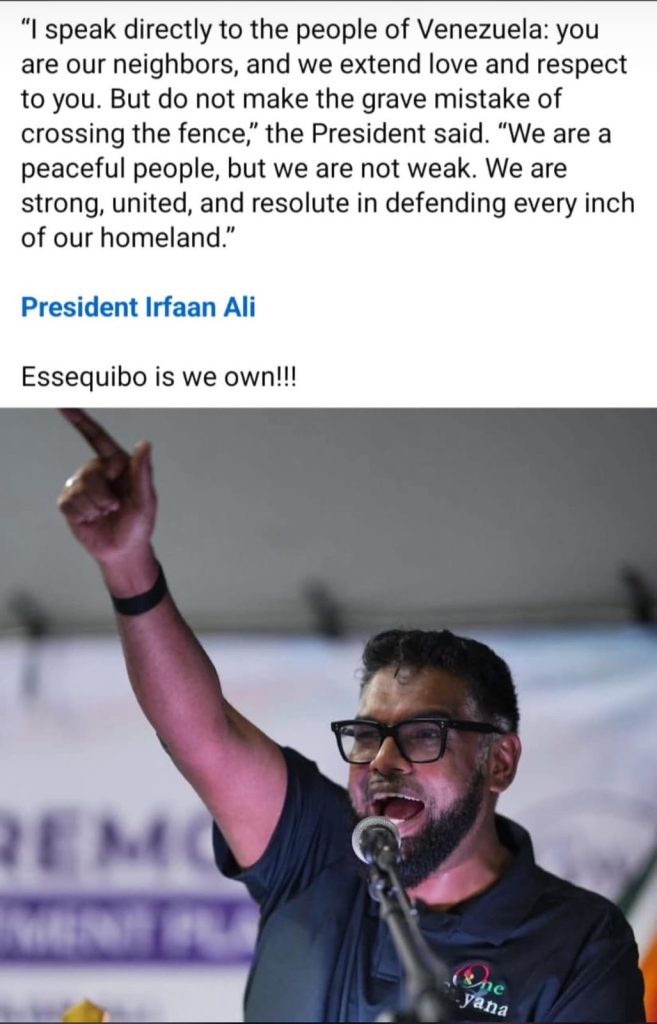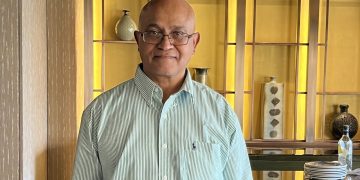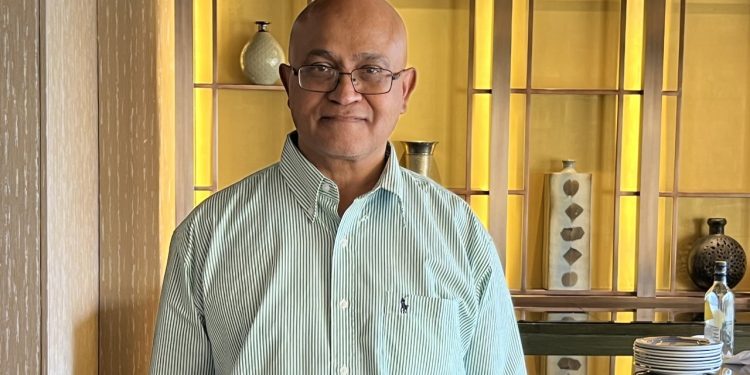Election has been announced by President Irfaan Ali for September 1. It has appeared to catch the nation and the political parties by surprise or by storm. It is a smart political move by the President, the VP, and the party. None, other than PPP, seems fully ready for an election. Everyone seems to be expecting it in late October or early November. It is a major challenge to form and or ready a party for an election.
The President is seeking re-election. He enjoys the advantages of incumbency. It is his prerogative to choose a date providing Gecom is ready to hold an election in his chosen date. He sounded Gecom for a date and then announces it.
By law, there must be three months notice of an election, a proclamation, and the dissolution of parliament. It means that parliament is likely to be dissolved this Friday and the proclamation issued the same day.
Traveling around the country, it seems incumbent PPP appears to be the most organized and most prepared or battle ready party for the elections. It is also the most experienced election campaigner. Its activists seem fully ready in contrast with others. They have been moving around the base communities of the party checking names of potential voters to certify registration, address change, and to get or prepare potential candidates for the national and regional elections. Activists of other parties do not appear as ready as the ruling party in preparing their party and nominees for the elections; they are not very active on the ground. The PPP has more resources and also enjoys other advantages and as such more active and ready.
Aside from the PPP, only the PNC or APNU seems to have the capacity and resources to engage in such preparation exercise to be ready for an election.Small or new parties are at a disadvantage to register voters, canvass, and acquire the minimal candidates to contest the election.
One characteristic of Guyanese politics is that political parties are organized around ethnicity. The country has two major ethnic groups and two major parties. Both are relatively well organized and will be ready for the elections. The others face major hurdles as they are not ethnicized to acquire quick support and be ready for an election.
 Political parties don’t publicly articulate ethnic interests, but they are perceived to represent the interests of their support groups who are largely ethnic. There are a few exceptions with small parties as they try to organize around non ethnic concerns, but they don’t draw much political support. People are looking for an alternative away from PPP, PNC, and AFC. The small parties appeal to non ethnic constituents without significant success. The entrance of Azruddin Mohamed, who announced his Presidential candidacy on May 26, is a breath of freshness. Azruddin is also an exception to ethnic politics. The name of his party is not announced as yet. He is currently attracting support from all ethnic groups. Whether he can sustain it for three months is a major challenge. The name of Glenn Lall is also making rounds among voters but he has not shown interest to contest or join others. Several other groups have been mentioned as contemplating entering the electoral fray, but they lack traction and face difficulty in readying themselves for a September 1 election. No other small party is attracting enough support to win a seat. A group promoting closer relations and or a friendship treaty with, even of the idea of Guyana being a part of, America is gathering significant traction among voters but also seemingly is surprised at the September 1 date as Guyanese like the idea of the country being tied to USA. It, like other small parties, also faces challenges to get candidates because of fear factors. If it can get on the ballot, it can create a major challenge for the two dominant parties, the AFC, and Azruddin’s yet to be announced political party.
Political parties don’t publicly articulate ethnic interests, but they are perceived to represent the interests of their support groups who are largely ethnic. There are a few exceptions with small parties as they try to organize around non ethnic concerns, but they don’t draw much political support. People are looking for an alternative away from PPP, PNC, and AFC. The small parties appeal to non ethnic constituents without significant success. The entrance of Azruddin Mohamed, who announced his Presidential candidacy on May 26, is a breath of freshness. Azruddin is also an exception to ethnic politics. The name of his party is not announced as yet. He is currently attracting support from all ethnic groups. Whether he can sustain it for three months is a major challenge. The name of Glenn Lall is also making rounds among voters but he has not shown interest to contest or join others. Several other groups have been mentioned as contemplating entering the electoral fray, but they lack traction and face difficulty in readying themselves for a September 1 election. No other small party is attracting enough support to win a seat. A group promoting closer relations and or a friendship treaty with, even of the idea of Guyana being a part of, America is gathering significant traction among voters but also seemingly is surprised at the September 1 date as Guyanese like the idea of the country being tied to USA. It, like other small parties, also faces challenges to get candidates because of fear factors. If it can get on the ballot, it can create a major challenge for the two dominant parties, the AFC, and Azruddin’s yet to be announced political party.
It is noted that one of the challenges small parties face in organizing and readying themselves for an election is fear factor. If seen fraternizing or supporting or identifying or even being independent, one is or can be victimized. Those who often go against the two major ethnic parties or the kingpins within the party are known to be victimized, isolated, marginalized, excluded, even expelled and tend to fall by the wayside because political kingpins dictate who will be beneficiaries or to be rewarded. That history goes back to the 1950s. Opportunists or those who jump from party to party are rewarded even if they don’t bring votes. And they exist in all parties. They bring certain necessary optics valued by a party. Valuable critics or those with independent thoughts or those with honor and integrity are almost never rewarded or valued; in fact, they are often treated with scorn. The understanding is that opportunists may also deliver some votes. They also deliver funding that is key to the campaign. But are interests of parties and constituents best served by opportunists?
In a true democracy, everyone should be able to freely participate in elections. People should not be victimized for their association regardless of which party they seek affiliation. In this way, parties can best be prepared for elections.
Yours faithfully,
Vishnu Bisram


































































